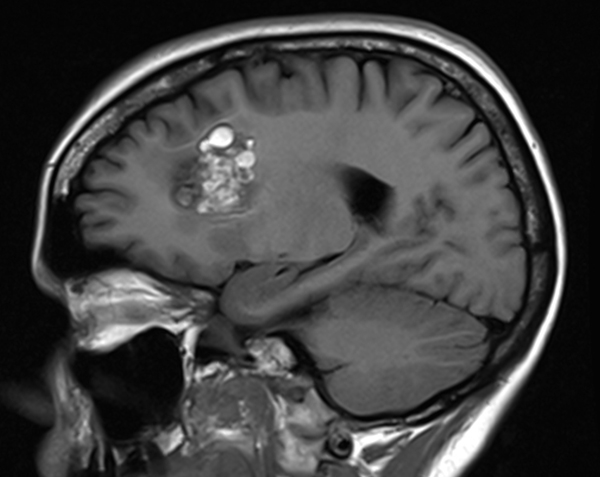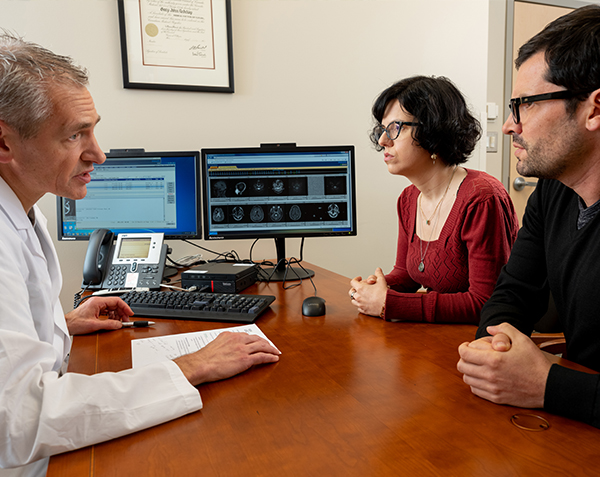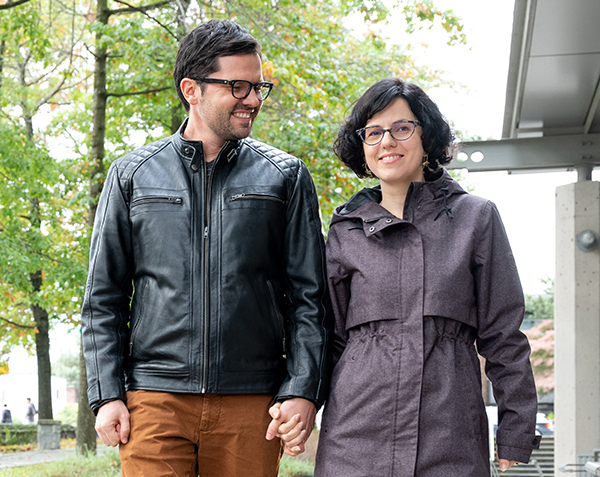Rebuilding her brain at GF Strong Rehab Centre
When Veronique woke up after her surgery she looked around and thought, What am I doing here? What happened to me?
“Everything changed that day,” says Veronique. “I don’t remember those next few weeks at all. It was very slow. I had to re-learn how to eat, talk, walk — everything.”
To get the help she needed to return to her former life as a school teacher, Veronique required the experts at GF Strong.
“We’re fortunate to have a great rehab hospital in GF Strong for patients to go there and interact and participate for several hours a day of fairly intensive therapy,” says Dr. Redekop.
Working diligently with the physiotherapists, nurses, doctors and speech therapists at GF Strong, Veronique went from learning foundational life skills like eating and walking to performing more complicated tasks, such as following recipes.
“It wasn’t just the physical rehabilitation I needed,” says Veronique. “It was also my mental strength I needed back as well. The staff at GF Strong are so incredibly supportive and have helped me get my body and mind on the right track.”
Today, almost a year since she came to VGH, Veronique is well on her way to returning to teach her third grade class and getting back to her former life.


